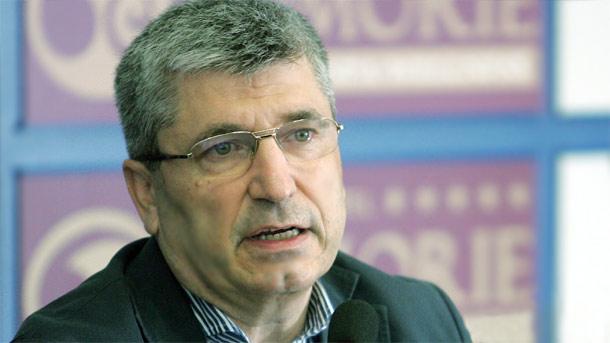The crisis in Ukraine calls into question natural gas deliveries to Bulgaria, cautioned Deputy Prime Minister Tsvetlin Yovchev and ordered a full inspection of the gas resource reserves. A few days ago Gazprom also warned there may be interruptions in the gas deliveries to Europe. Kiev is not in a capacity to guarantee the smooth transportation of gas to Bulgaria by itself, said on his part Ukraine’s ambassador to this country Mikola Baltaji. Is there any risk of a repeat of the 2009 gas crisis?
The major risks Bulgaria faces as a result of the crisis in Ukraine are rooted in this country’s energy dependence on Russian gas. We in Bulgaria remember well January 2009 when we were left in the cold and dark for over a month. Then the reason was a dispute between Kiev and Moscow over the price of natural gas and the deliveries to Bulgaria and Europe across Ukrainian territory were cut off. Now Moscow is again trying to play the gas trump card in its political dispute with Ukraine. The risks to Bulgaria and Europe are rooted in the fact that Moscow could “pull the plug” and cut off gas deliveries at any time, just as it did in 2009. “The risk is real and no one is ruling out Russia’s using gas in its negotiations with the EU,” comments energy expert and former ambassador of Bulgaria to Russia Ilyan Vassilev:
 “Of course, this would be a high-risk exercise for Russia itself, as things have changed a great deal since the last time deliveries were cut off in 2009. Now, Russia doesn’t have that leverage. It is as of each time it makes a demonstration of power, it loses its right to use that same instrument one more time. But, be as it may, natural gas is still a weapon. Russia is no longer in possession of that power and for this reason I wouldn’t say there is a growing risk of gas deliveries being cut off. On the contrary, the risk is now moderate and still depends on finding a way out of the crisis using diplomatic means.”
“Of course, this would be a high-risk exercise for Russia itself, as things have changed a great deal since the last time deliveries were cut off in 2009. Now, Russia doesn’t have that leverage. It is as of each time it makes a demonstration of power, it loses its right to use that same instrument one more time. But, be as it may, natural gas is still a weapon. Russia is no longer in possession of that power and for this reason I wouldn’t say there is a growing risk of gas deliveries being cut off. On the contrary, the risk is now moderate and still depends on finding a way out of the crisis using diplomatic means.”
If gas deliveries from Russia were to be restricted the main alternative is the Chiren underground gas depot, but the gas there will only last for two months. Local extraction can cover 10 percent of the consumption. One source of alternative fuel is the connection with Greece, which has been providing an opportunity for deliveries to Bulgaria since January 1 this year. It was adjusted for the transportation of natural gas during the previous gas crisis in 2009. In extraordinary circumstances it can be used to purchase gas coming from Iran, via Turkey. The gas connection with Turkey will be launched next week. By April the country should have a gas connection with Romania as well. All this means Bulgaria will gain access to other alternatives to Russian gas.
Europe is in the grips of a gas fever and has been stocking up. Because of the warm winter most European countries have economized on their gas resources. The countries, bordering on Ukraine like Poland, Slovakia and Hungary, as well as Austria, Serbia and Germany can hold up for several months in the event of a disruption in the delivery of Russian gas. Ukraine itself has a resource that will last four months and is now feverishly buying Russian gas because the low prices are until the end of March. The Bulgarian depot is half full and there is no indication whether Bulgaria will accumulate more reserves against a possible gas crisis.
English version: Milena Daynova
“The main priorities businesses have – membership of the Eurozone and accession to the Schengen area by land – have receded to the background. They are the motors which can boost the economy, but the fact there is no regular government is an obstacle..
Bulgargaz has reported record interest in its tender for the supply of LNG to the Alexandroupolis terminal for January and February 2025. All nineteen bidders met the criteria set by the company and have been approved to participate in the next..
The Russian state oil company Lukoil has plans to sell its Bulgarian refinery Neftochim based in Burgas on the Black Sea Coast. It is the largest in the Balkans, writes the Financial Times . The deal is expected to be announced by the end of..
Urgent reform of Bulgaria's planning districts is needed, local authorities insist.The current regionalization shows increasing economic imbalances in..

+359 2 9336 661
